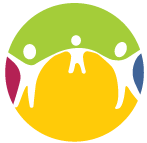Transitions are part of life. There is this very cool concept called the Liminal Space. It is that period between the end of one experience and the beginning of the next one. Think being single then married, married then widowed/divorced, employed then unemployed. Think about being a teen for whom food is purchased, a bed is provided, and medical care is available at no charge who is facing an adulthood for which all of this arrives only if they can find a job, manage their money, follow the work rules, and access their medical benefits.
Ours is a culture of youth: vitality, the physical strength demonstrated in sports, clothing trends, music as identity, and beauty. Many parents have an idealized idea of childhood as a period free of challenge; carefree and joyous. Combine this with high expectations for academic success that are thought to portend success in life and no wonder anxiety plagues our youth (even those without histories of trauma). The rub comes when that carefree child for whom all has been provided, all obstacles removed, must leave the nest for adulthood with nary any idea of what that really means.
Successfully navigating the transition to adulthood depends on how fiercely one clings to the fantasy of perpetual childhood, how carefully one has learned to manage stress levels and self-regulation, and how well one has broken down this huge change into a cascade of small steps. I’ve written before about managing stress and self-regulation. I’d like to explore those small steps here.
It is our job as parents to do our best to ease our teens through this liminal space, to give them experiences that represent a taste of what adulthood is going to require of them. This is where that cascade of small steps mentioned above comes into play. I’d like to start with three concepts that are foundational to this process of navigating this transition to adulthood.
Agency is one’s ability to independently realize an intention. It is hugely evident in a newly ambulatory 2-year-old who can now walk to the kitchen, open the fridge, and reach a juice box (getting that pesky straw inserted independently may take a bit longer, though). Agency is also a 3rd grader with a semester project due in 2 weeks, who imagines the content, researches the content, goes to the store for a sheet of poster board, illustrates the concepts and presents the information to their classmates and teacher. For a teen, agency may be deciding what color to paint their room and painting it (even with your help).
Resiliency is one’s ability to recover from set-back. When that 2-year-old reaches for a second and third juice box after the others collapse trying to get that straw to go in just right, that’s resilience. It’s also a huge mess. When that 3rd grader has to write really small to get that last bit of info onto that poster board and even crawl up the side of the page, that’s also resilience. Not to my personal, adult standards for a presentation but, hey, she’s only 8. For a teen, the ability to get that second coat on now that the novelty has worn off, demonstrates resiliency.
Accountability is simply to take responsibility for one’s actions. When dad hands the toddler a bunch of paper towels to soak up the spilled juice, that’s accountability, even under protest. When that 3rd grader gets a grade for the semester project, knowing it was theirs from start to finish, that’s accountability. When the teen cleans the paint brushes and can show off their newly painted room, that’s accountability.
I remember a friend who was a nurse in her professional life telling me about “see one, do one, teach one”. So much of her work was focused on manual procedures that this is the strategy that was called upon to learn and demonstrate a wide variety of skills, including injections, blood draws, starting an IV and changing linens from under a bed-ridden, immobile patient. I also like the idea that everyone becomes a teacher in this way of learning new skills. The transition from student to teacher is realized one incremental skill set at a time until a competent nurse is born. Along the way, the opportunity to share what is known further strengthens all nurses, both students and teachers. Vygotsky called this the Zone of Proximal Development: this easing off of oversight and support. A teen teaching a younger child a skill they have mastered serves them in confidence and agency. Don’t be afraid to delegate some of this teaching to your teen.
In her book, Your Turn – How to be an Adult, Julie Lythcott-Haims takes this idea and applies it to the skills needed for a young person to make the transition from dependent teen to independent adult. Lythcott-Haims’ variation on this theme is
- Do it for them (they observe you doing it)
- Do it with them (together you get it done)
- Watch them do it (you supervise, offering help as needed)
- They can do it alone
I’ll close with a brief brainstorm of skills that are necessary for adulting. I encourage you to add to this list and get going offering experiences that offer a chance to observe, to collaborate, to demonstrate with supervision/guidance and finally, to realize independently. It would be wise to sit down with your teen to consider additions to this list, too!
Laundry Citizenship Meal Planning Budgeting & Shopping
Meal Prep/Cooking Housekeeping/Maintenance First Aide Vehicle Maintenance
Basic Nutrition Home Ownership Water & Fire Safety Tools to Stay Organized
How to be assertive Rights How to write resume’/find a job
Time Management/Scheduling How to use public transportation/read a map
NEWS
- Check out the AZAFAP Event Calendar at https://azafap.gnosishosting.net/Events/Calendar.
- Our Friday night Happy Hour and Tuesday afternoon Coffee Chat continue. Some find me and a single other participant; others find a conversation among 4 to 6 people. The topics range from the silly to what hobbies have us in their grip to what life has thrown in our path. If you ever find yourself wanting a bit of grown-up conversation, consider joining us (check your email for the unchanging link).
- Registration is also open for our regional Circles of Supportive Families. Reach out to find another parent who understands.
- I encourage you to check out what Dr. Bruce Perry has to offer. Find his thoughts at https://www.pcaaz.org/wp-content/uploads/2019/07/B21-Insightful-Caregiving-Intimacy.pdf and at https://www.neurosequential.com/covid-19-resources
Thanks for listening. Take care of yourself so you can take care of others.
Cathy


Recent Comments